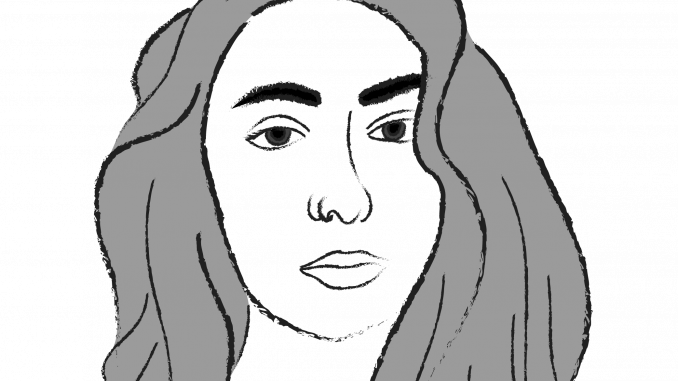
You don’t look like a Jew.”
The statement came from the woman who sat behind me in my statistics lab last semester, after I had explained to my professor that I was fasting that day for Yom Kippur, the Jewish holiday of repentance.
It was a sentiment much like various others I’ve heard throughout my life: “I knew you were Jewish because of your nose,” “You’re too tan to be Jewish” and more generally, “You have that Jewish look about you.”
These comments have been shoved down my throat as a way for others to stereotype me, to put me in a box, or at other times to make me feel like an imposter. They embolden others to try to define my religion and spirituality by the way I look.
From my own point of view, I do have stereotypical Semitic features: olive skin, darker during the summer months, thick eyebrows and dark, coarse hair that resembles a lion’s mane when not properly taken care of. For much of my life, my appearance has been a signifier of my religion and ethnicity, but more so, it has been a stark reminder that while growing up I didn’t look like the other girls I knew.
I rarely saw girls who looked like me in the media. My childhood idols were all blonde girls with perfectly porcelain skin and straight hair. Throughout my teenage years, I remember wishing I looked less like me and more like those girls on television.
I found myself straightening my hair every single day, plucking my eyebrows like my life depended on it and applying sunscreen constantly during the summer, not to protect my skin, but to ensure I didn’t get any darker than I already was.
My adolescence — already a struggle to accept the pressures of becoming a woman — in which it was made more challenging by my reluctance to accept my own ethnic features: the burden of not being white enough.
Then, during my freshman year at Temple, I took Race & Judaism, a course that explored the various intersections between the Jewish religion, peoplehood and race. Suddenly I realized I wasn’t alone in my feelings of dissolution regarding my appearance.
I spent the semester listening to my professor lecture on the Jewish people’s centuries-long struggle to deal with anti-Semitism, and learning that we’ve been exposed to hapless physical stereotypes since the beginning of our existence. Even the clichéd hooked nose isn’t a new phenomenon, having been used in depictions of Jews since the 13th century.
Rather than leaving me feeling hopeless, my newfound knowledge gave me the keen understanding that this struggle to reconcile what I saw in the mirror with the history of my people was not exclusive to me. This was a struggle that, while alienating the Jewish people from the majority, also served as a common thread that connected us in our hardships.
From then on, I started spending less time criticizing my looks for being different and more time appreciating them for making me an individual. I stopped ironing my hair straight every day and let myself enjoy being tan during summer. I started to embrace my nose, and eventually, I got it pierced as a way to celebrate the “schnoz” I’d been given.
A lot of it had to do with the sudden increase of ethnic girls on television and in advertising as diversity became a cornerstone of the media industry. And plenty of it was a byproduct of maturing during college and slowly letting go of my skin-deep preoccupations. But a larger part of my newfound confidence was the realization that, while many others used my appearance to alienate me, I could claim my looks as part of what made me an individual, not a stereotype.
There are still days when I look in the mirror and wish I looked more like whichever Victoria’s Secret model is popular that week. Whoever that model is, she will most likely have lighter skin and smoother hair than I do. But those days are few and far between now. Most days I walk with pride in my appearance, knowing that it connects me to a rich history of Jews going back as far as history itself.
Over this past winter break, I decided to embrace this connection even more through a tattoo. It reads “Eshet Chayil” in Hebrew print — a biblical phrase meaning “woman of valor.” The words, scrawled across my inner bicep, serve not only as a way to wear my identity proudly, but as a reminder to love myself for the woman I am — oversized nose, dark skin and thick hair included.
Sasha Lasakow can be reached at sasha.lasakow@temple.edu.


Be the first to comment